I would love to see this with Carl wearing a maga hat
Say no to authoritarianism, say yes to socialism. Free Palestine 🇵🇸 Everyone deserves Human Rights
- 16 Posts
- 48 Comments

 702·28 days ago
702·28 days agoThe US has shown time and time again that Israel can kill as many Americans as they want without any consequence. The US cares far more about their foreign policy in the region than American lives

 11·2 months ago
11·2 months agoI agree, main reason I made the quote that long. That doesn’t justify the invasion, especially since it only justified Europe’s need for a defensive pact, one the US is quick to exploit which the quote mentions. A people fighting for sovereignty will get weapons to fight back by any means possible, which the US is exploiting for its own ends.

 69·2 months ago
69·2 months agoIf you think Chomsky has justified any US war you are delusional. And yes, Russia’s interest is in expanding access to the Azov and Black Sea at the very least.

 813·2 months ago
813·2 months agoUkraine is fighting for its sovereignty.
Russia's military concerns does not justify it's criminal invasion
From 2014, the U.S. and NATO began to pour arms into Ukraine — advanced weapons, military training, joint military exercises, moves to integrate Ukraine into the NATO military command. There’s no secret about this. It was quite open. Recently, the Secretary General of NATO, Jens Stoltenberg, bragged about it. He said: This is what we were doing since 2014. Well, of course, this is very consciously, highly provocative. They knew that they were encroaching on what every Russian leader regarded as an intolerable move. France and Germany vetoed it in 2008, but under U.S. pressure, it was kept on the agenda. And NATO, meaning the United States, moved to accelerate the de facto integration of Ukraine into the NATO military command.
In 2019, Volodymyr Zelensky was elected with an overwhelming majority — I think about 70% of the vote — on a peace platform, a plan to implement peace with Eastern Ukraine and Russia, to settle the problem. He began to move forward on it and, in fact, tried to go to the Donbas, the Russian-oriented eastern region, to implement what’s called the Minsk II agreement. It would have meant a kind of federalization of Ukraine with a degree of autonomy for the Donbas, which is what they wanted. Something like Switzerland or Belgium. He was blocked by right-wing militias which threatened to murder him if he persisted with his effort.
Well, he’s a courageous man. He could have gone forward if he had had any backing from the United States. The U.S. refused. No backing, nothing, which meant he was left to hang out to dry and had to back off. The U.S. was intent on this policy of integrating Ukraine step by step into the NATO military command. That accelerated further when President Biden was elected. In September 2021, you could read it on the White House website. It wasn’t reported but, of course, the Russians knew it. Biden announced a program, a joint statement to accelerate the process of military training, military exercises, more weapons as part of what his administration called an “enhanced program” of preparation for NATO membership.
It accelerated further in November. This was all before the invasion. Secretary of State Antony Blinken signed what was called a charter, which essentially formalized and extended this arrangement. A spokesman for the State Department conceded that before the invasion, the U.S. refused to discuss any Russian security concerns. All of this is part of the background.
On February 24th, Putin invaded, a criminal invasion. These serious provocations provide no justification for it. If Putin had been a statesman, what he would have done is something quite different. He would have gone back to French President Emmanuel Macron, grasped his tentative proposals, and moved to try to reach an accommodation with Europe, to take steps toward a European common home.
The U.S., of course, has always been opposed to that. This goes way back in Cold War history to French President De Gaulle’s initiatives to establish an independent Europe. In his phrase “from the Atlantic to the Urals,” integrating Russia with the West, which was a very natural accommodation for trade reasons and, obviously, security reasons as well. So, had there been any statesmen within Putin’s narrow circle, they would have grasped Macron’s initiatives and experimented to see whether, in fact, they could integrate with Europe and avert the crisis. Instead, what he chose was a policy which, from the Russian point of view, was total imbecility. Apart from the criminality of the invasion, he chose a policy that drove Europe deep into the pocket of the United States. In fact, it is even inducing Sweden and Finland to join NATO — the worst possible outcome from the Russian point of view, quite apart from the criminality of the invasion, and the very serious losses that Russia is suffering because of that.
The US is after the minerals within Ukraine. Russia has already gained the major resource of land. Both have interests to expand their sphere of influence, both have taken advantage of Ukraine for their own ends.
You can strawman all you want, but as a leftist I will continue to criticize the imperialism of every empire. It’s not hard to be consistently anti-imperialist.

 2711·2 months ago
2711·2 months ago“Two fascists collaborate to plunder and steal the land and resources of sovereign nation”

 710·2 months ago
710·2 months agoRussia strongly condemns any actions that lead to the death of civilians and destruction of social infrastructur
Except when it comes to Ukraine
Russia only cares about undermining US imperialism as far as replacing it with Russian imperialism

 7·2 months ago
7·2 months agoHamas are still terrorists who are holding their own people hostage.
This is literally Israeli propaganda to blame the occupation, the Apartheid, and the genocide, onto Palestinians who dare to fight for emancipation.
The existence of Hamas, and any armed resistance movement, is directly due to the decades of violence experienced daily under the permanent occupation, the Apartheid State, of Israel. It’s impossible to understand their existence if you don’t understand the lived experience and material conditions they are forced to live under. There is no such thing as a perfect victim when it comes to anti-Colonialist resistance, not for the Vietcong, the IRA, or the ANC either. Can you condemn the violence of the Warsaw Ghetto Uprising in the same way as the violence of the Warsaw Ghetto?
In the Shadow of the Holocaust by Masha Gessen, the situation in Gaza is compared to the Warsaw Ghettos. The comparison was also made by a Palestinian poet who was later killed by an Israeli airstrike. Adi Callai has also written on the parallels in his article The Gaza Ghetto Uprising and expanded upon in his corresponding video
Adi Callai has also done a great analysis of how Antisemitism has been weaponized by Zionism during its history, as well as an analysis of Franz Fanon and Identity Politics in the context of Colonialism and Anti-colonialism.

 1·2 months ago
1·2 months agoOh yeah, absolutely. That’s the main reason I find it so important to distinguish the two, because Zionists will cynically defend any criticism of the Apartheid and Genocide of Palestine with the false notion that the criticism is antisemitic. Which comes at the expense of increasing genuine Antisemitism and Islamophobia globally, in order to muddy the water of completely valid criticism and opposition to the incredibly fascist actions of the Israeli State.

 1·2 months ago
1·2 months agoDiscussions are great. I’m just warning that without a clear mark of sarcasm, that kind of comment will certainly come off as Zionist

 2·2 months ago
2·2 months agoThere are zionists who genuinely think that anti-semitism = Anti-zionism, it’s important to add the /s so people know you aren’t one of those. The intonation of sarcasm can’t be read unfortunately

 51·2 months ago
51·2 months agoThat’s as reductive as blaming Jewish people for Nazi Germany’s response to the Warsaw Ghetto Uprising.
In the Shadow of the Holocaust by Masha Gessen, the situation in Gaza is compared to the Warsaw Ghettos. The comparison was also made by a Palestinian poet who was later killed by an Israeli airstrike. Adi Callai has also written on the parallels in his article The Gaza Ghetto Uprising and expanded upon in his corresponding video

 12·2 months ago
12·2 months agoIsrael also banned Palestinians from celebrating the release of the Palestinian hostages that have been tortured daily in Israeli prisons. They also banned Call to Prayer for Muslims

 4·4 months ago
4·4 months agoYet another report, when will it be enough for governments to stop arming Israel?
Israel's Genocide on Occupied Palestine
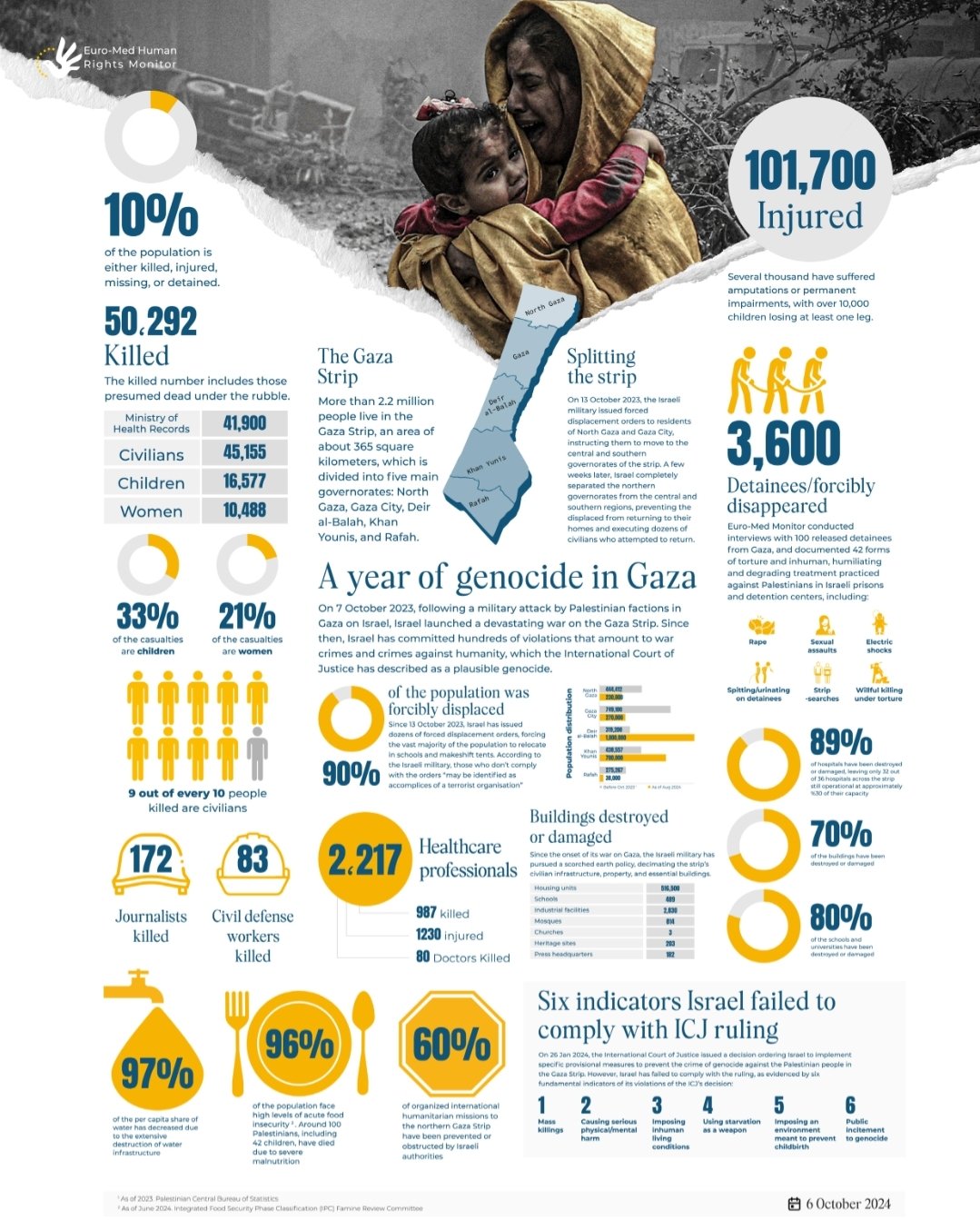
- De-Gaza: A Year of Israel’s Genocide and the Collapse of World Order - Euro-Med Monitor Report see Chapter 2 and 3
Our first-hand observations of the medical and humanitarian catastrophe inflicted on Gaza are consistent with the descriptions provided by an increasing number of legal experts and organizations concluding that genocide is taking place in Gaza.
- Doctors Without Borders: Life in the death trap that is Gaza
It examines the killing of civilians, damage to and destruction of civilian infrastructure, forcible displacement, the obstruction or denial of life-saving goods and humanitarian aid, and the restriction of power supplies. It analyses Israel’s intent through this pattern of conduct and statements by Israeli decision-makers. It concludes that Israel has committed genocide against Palestinians in Gaza.
- Amnesty: Israel’s Genocide Against Palestinians in Gaza Revealed Through Evidence and Analysis Video and Israel/Occupied Palestinian Territory: ‘You Feel Like You Are Subhuman’: Israel’s Genocide Against Palestinians in Gaza Report
On 26 January 2024, the ICJ said that it was plausible that Israel had breached the Genocide Convention. As an emergency measure, it ordered Israel ensure that its army refrained from genocidal acts against Palestinians.
The ICJ reported, as part of its decisions in March and May, that the situation in Gaza had deteriorated and that Israel had failed to abide by its order in January.
So, when we look at the actions taken, the dropping of thousands and thousands of bombs in a couple of days, including phosphorus bombs, as we heard, on one of the most densely populated areas around the world, together with these proclamations of intent, this indeed constitutes genocidal killing, which is the first act, according to the convention, of genocide. And Israel, I must say, is also perpetrating act number two and three — that is, causing serious bodily or mental harm, and creating condition designed to bring about the destruction of the group by cutting off water, food, supply of energy, bombing hospitals, ordering the fast evictions of hospitals, which the World Health Organization has declared to be, quote, “a death sentence.” So, we’re seeing the combination of genocidal acts with special intent. This is indeed a textbook case of genocide.
More than 800 scholars of international law and genocide have signed a public statement arguing that the Israeli military may be committing genocidal acts against Palestinians in the Gaza Strip as the total siege and relentless airstrikes continue to inflict devastation on the occupied territory.
An independent United Nations expert warned Monday that “Israel’s genocidal violence risks leaking out of Gaza and into the occupied Palestinian territory as a whole” as Western governments, corporations, and other institutions keep up their support for the Israeli military, which stands accused of grave war crimes in the Gaza Strip and West Bank.
Our documentation encompasses over 500 incitements of violence and genocidal incitement, appearing in the forms of social media posts, television interviews, and official statements from Israeli politicians, army personnel, journalists, and other influential personalities.
I, Lee Mordechai, a historian by profession and an Israeli citizen, bear witness in this document to the situation in Gaza as events are unfolding. The enormous amount of evidence I have seen, much of it referenced later in this document, has been enough for me to believe that Israel is committing genocide against the Palestinian population in Gaza. I explain why I chose to use the term below. Israel’s campaign is ostensibly its reaction to the Hamas massacre of Oct. 7, 2023, in which war crimes and crimes against humanity were committed within the context of the longstanding conflict between Israelis and Palestinians that can be dated back to 1917 or 1948 (or other dates). In all cases, historical grievances and atrocities do not justify additional atrocities in the present. Therefore, I consider Israel’s response to Hamas’ actions on Oct. 7 utterly disproportionate and criminal.

 3·5 months ago
3·5 months ago“Here in Deir al-Balah, it’s like an apocalypse. There is no room for you to pitch a tent; you have to set it up near the coast… You have to protect your children from insects, from the heat, and there is no clean water, no toilets, all while the bombing never stops. You feel like you are subhuman here.”
- Mohammed, a 42-year-old father of three, speaking in June 2024 about his experience of displacement from Rafah to Deir al-Balah governorate
Link to the Amnesty Report: Israel/Occupied Palestinian Territory: ‘You Feel Like You Are Subhuman’: Israel’s Genocide Against Palestinians in Gaza

 2·5 months ago
2·5 months ago“Here in Deir al-Balah, it’s like an apocalypse. There is no room for you to pitch a tent; you have to set it up near the coast… You have to protect your children from insects, from the heat, and there is no clean water, no toilets, all while the bombing never stops. You feel like you are subhuman here.”
- Mohammed, a 42-year-old father of three, speaking in June 2024 about his experience of displacement from Rafah to Deir al-Balah governorate
Link to the Document: Israel/Occupied Palestinian Territory: ‘You Feel Like You Are Subhuman’: Israel’s Genocide Against Palestinians in Gaza

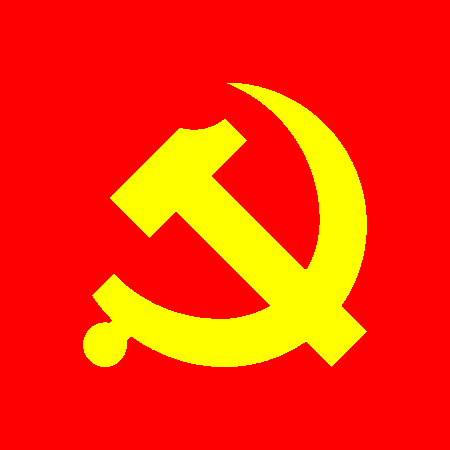 3·6 months ago
3·6 months agoAh, I haven’t done much indepth reading of Marx yet so I wasn’t aware those were considered deviations. That makes sense. Overall I still agree with their deviations, I think they are reasonable and applicable to the current situation we’re in. I also agree with you and the works of Engles and Marx that is workplace democracy is not the end-all-be-all solution and that it will inevitably have to change one way or the other, either towards communism or regress back to capitalism.
I still stand by that Chomsky’s works are worth reading for people who are interested in and learning about socialism. It’s relatively digestible, easy to start, informative about our current situation, and I think the concept of workplace democracy is the most applicable method for people to resist the current state of the world dominated by Capitalism. I also agree with you that it’s best if not taken alone and better paired with the works of Marx, Engles, ect. But I do think it’s a great starting place for most people. Especially since most people still think of capitalism as simply ‘markets’ and ‘free trade’ and socialism/communism as ‘bread lines’ and ‘gulags’ which is of course far removed from the reality.

 31·6 months ago
31·6 months agoI think Chomsky’s view is similar to Richard Wolff’s when it comes to concepts like State Capitalism. From what I’ve gathered, it relates to the relationship between the owners and workers. In state capitalism, there is still an authoritarian relationship between the owners or board of directors and the workers. The main difference is that the business is owned by the State, I’ve heard Wolff also call this Authoritarian Socialism. I’ve noticed both Chomsky and Wolff differentiate this from a socialist relationship, where the workers are also the owners in a democratic organization of the business, where this socialist relationship can be in either the Private sector or the State. This differentiates both Private and State Capitalism from Democratic Socialism, where the socialist relationship is present all forms of business both State and Private.
I don’t think this makes their works anti-marxist. While Chomsky may use a different definition of Socialism as discussed above, he has a very detailed analysis of how Capital Interests, especially since the implementation of neoliberalism, have affected the material conditions of the working class and atomized social organization. I think the main difference is that Chomsky does not see revolution as inevitable, but he still has a focus on how resistance and organization is necessary to overcome the power of global capitalism. I think it’s quite Marxist, but within the framework of the American Empire.
From that quote it looks look like Blackshirts and Reds does touch on the interplay between media and capital. But I think Manufacturing Consent both goes into much more detail for the whole scope, from Imperialists interests of the State down to individual media consumption, and also much more relevant to the media landscape facing the American and Western public today.
Marv Waterstone in Consequences of Capitalism does a fantastic job detailing the realities and effects of Global Capitalism in every aspect of today. From how it affects Imperialism on the global scale, to the environment and the Climate Catastrophe, to how it affects and has atomized the everyday worker.
They give an incredible amount of context about the current state of Capitalism, the current state of the working class, and a framework of organizing and resistance.

 1·6 months ago
1·6 months agoWhat do you think about adding Manufacturing Consent and Consequences of Capitalism by Noam Chomsky? I think they both explain both the current media situation and realities of global capitalism very well without the need of reading previous theory.


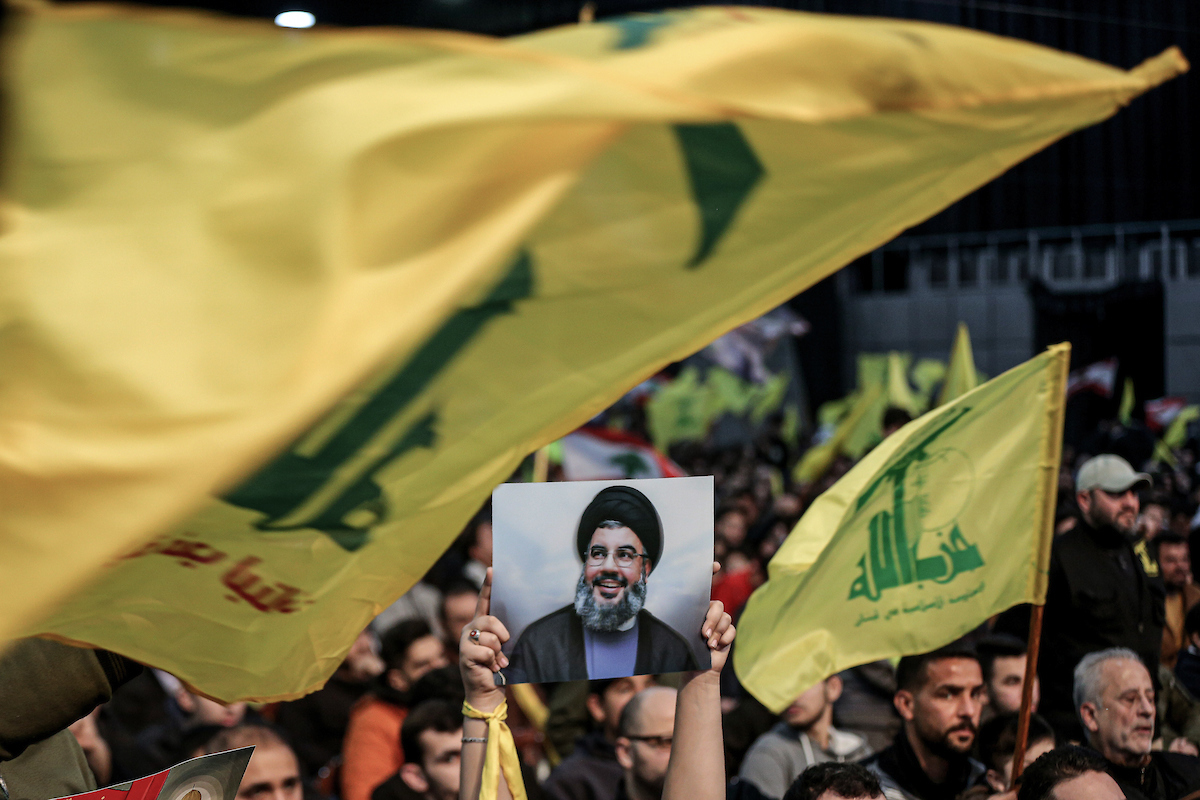
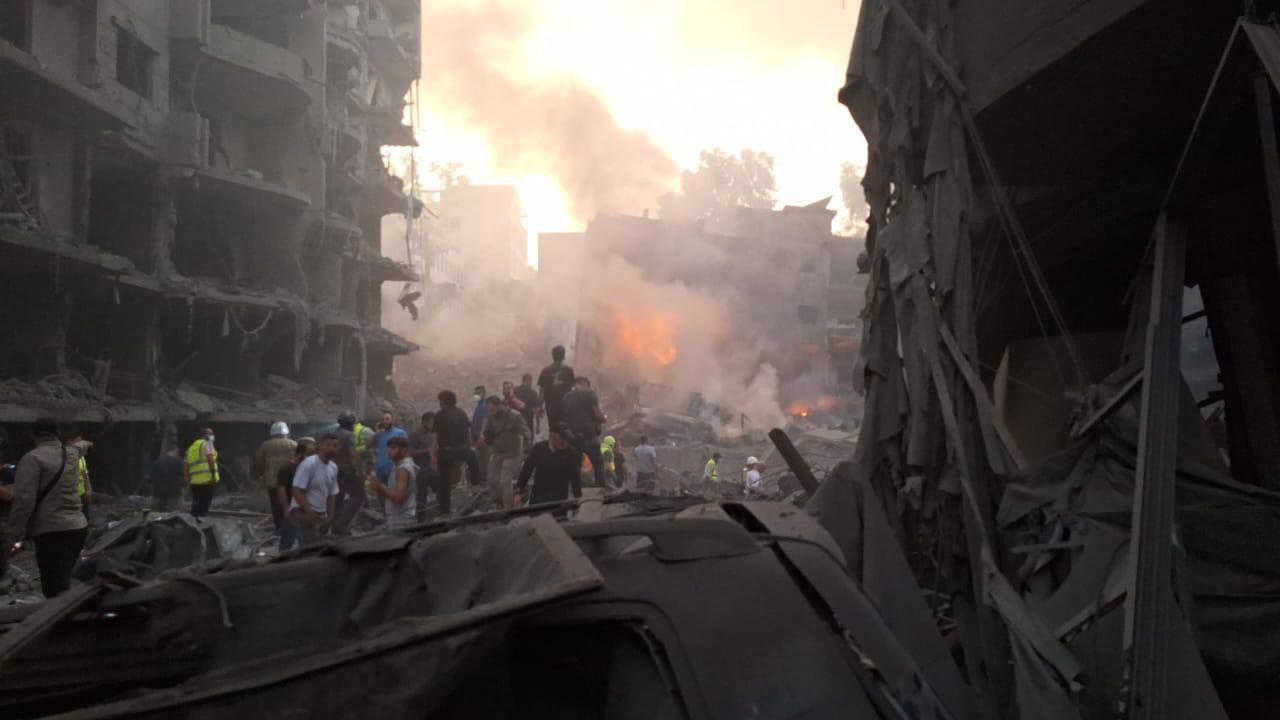
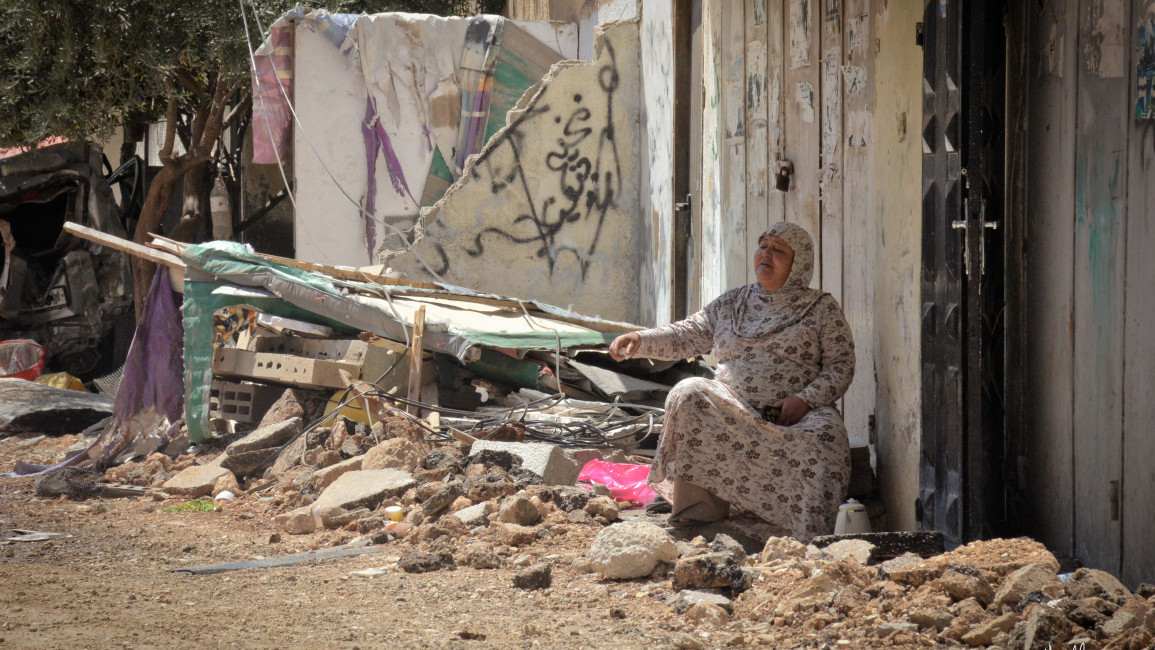
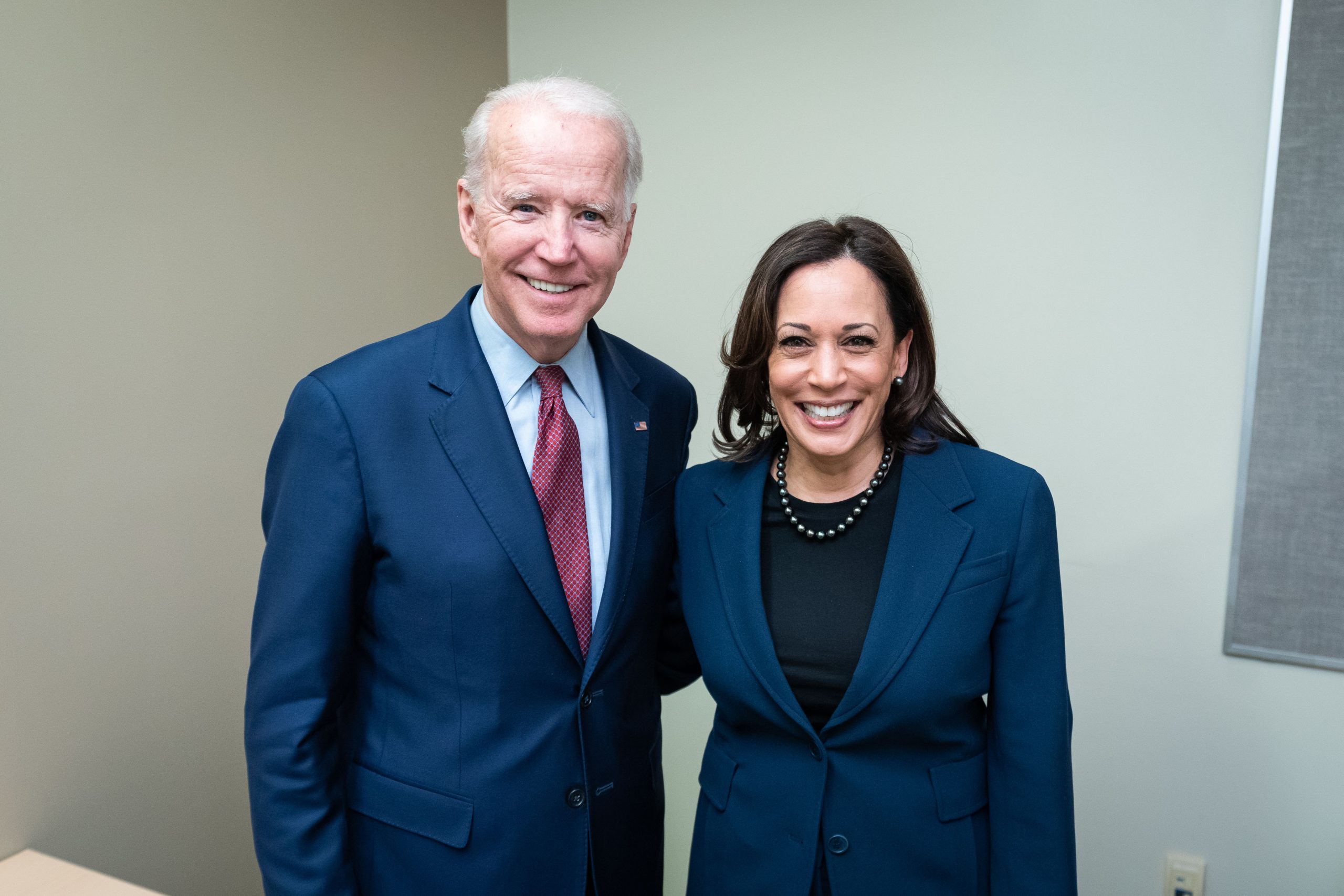

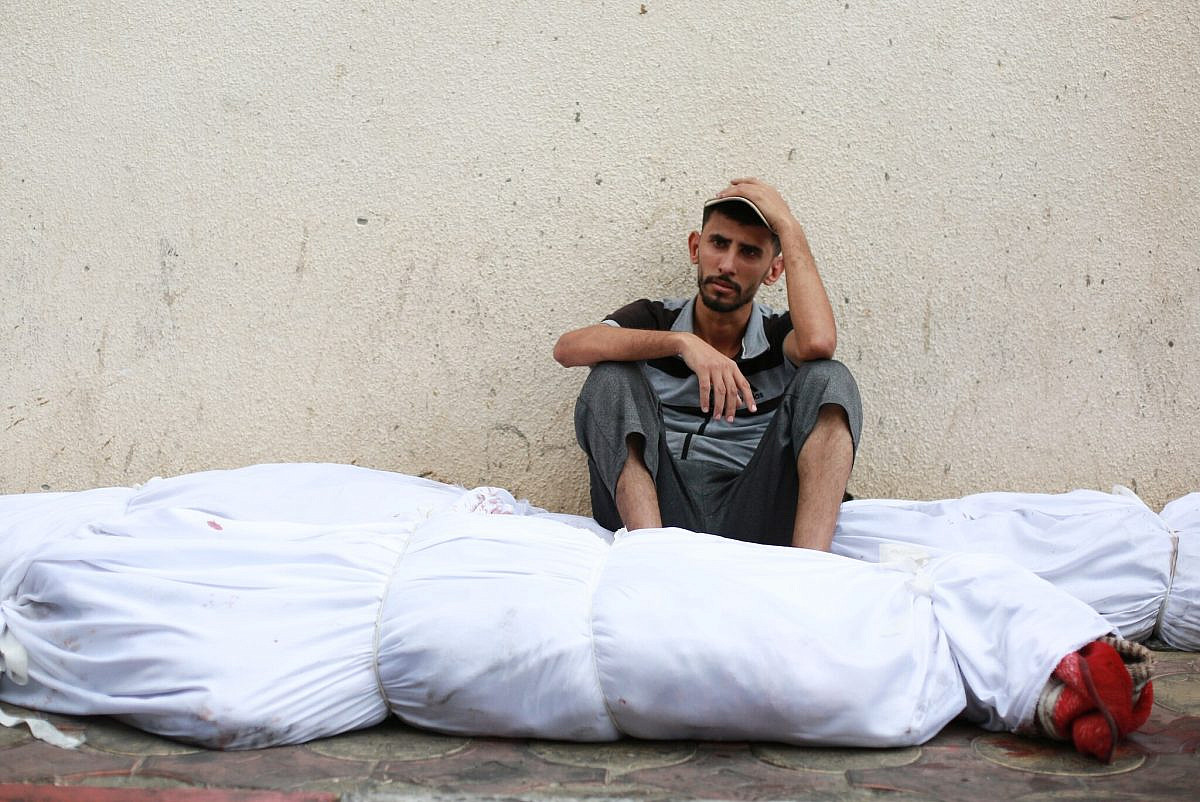



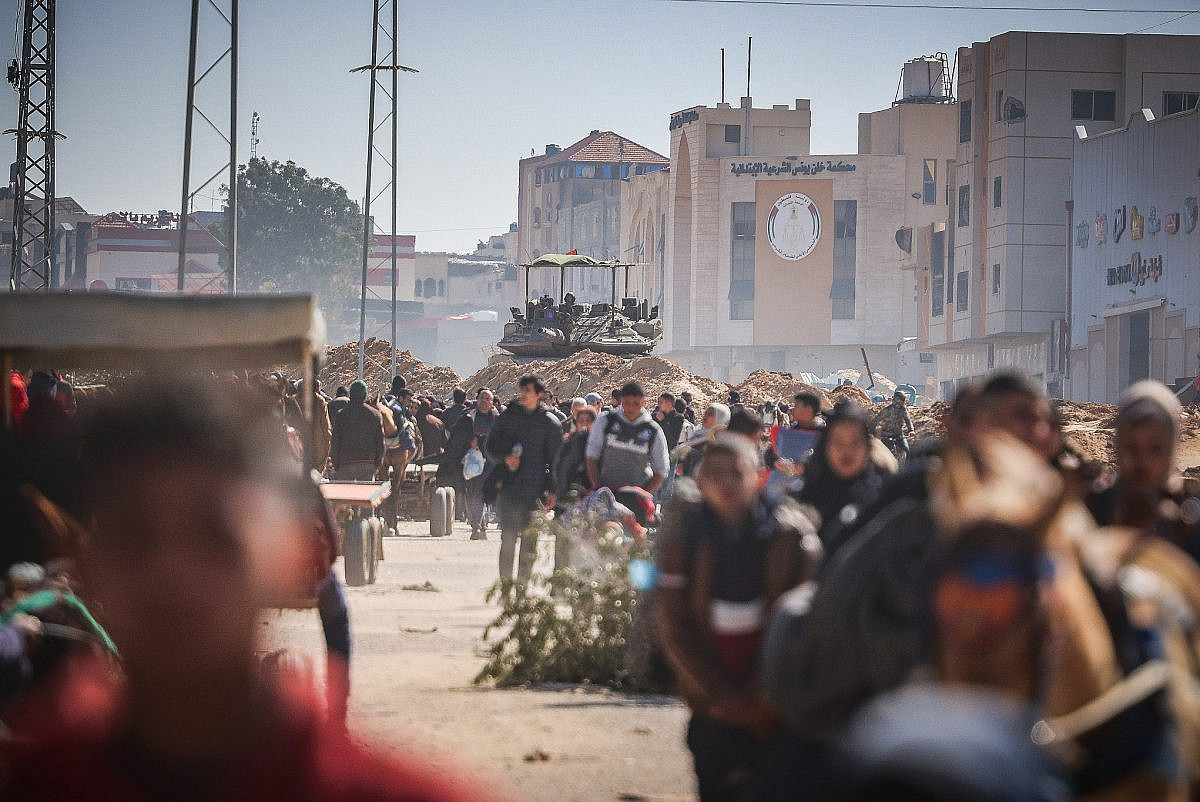
A lot of Americans think ‘free trade’ means all countries involved are on an equal footing. That’s what it should mean, and what the term looks like when taken at face value. Most don’t recognize that ‘free trade’ as the US uses it means free for corporations to exploit the global south through the use of Neo-colonialism. It means coercing the global south to privatize their natural resources, become indebted in the process, and be forced to let foreign corporations control and exploit the local labor force down to wage slavery. Crippling their economies as western corporations maximize profit and resource extraction at the expense of the local government and population.